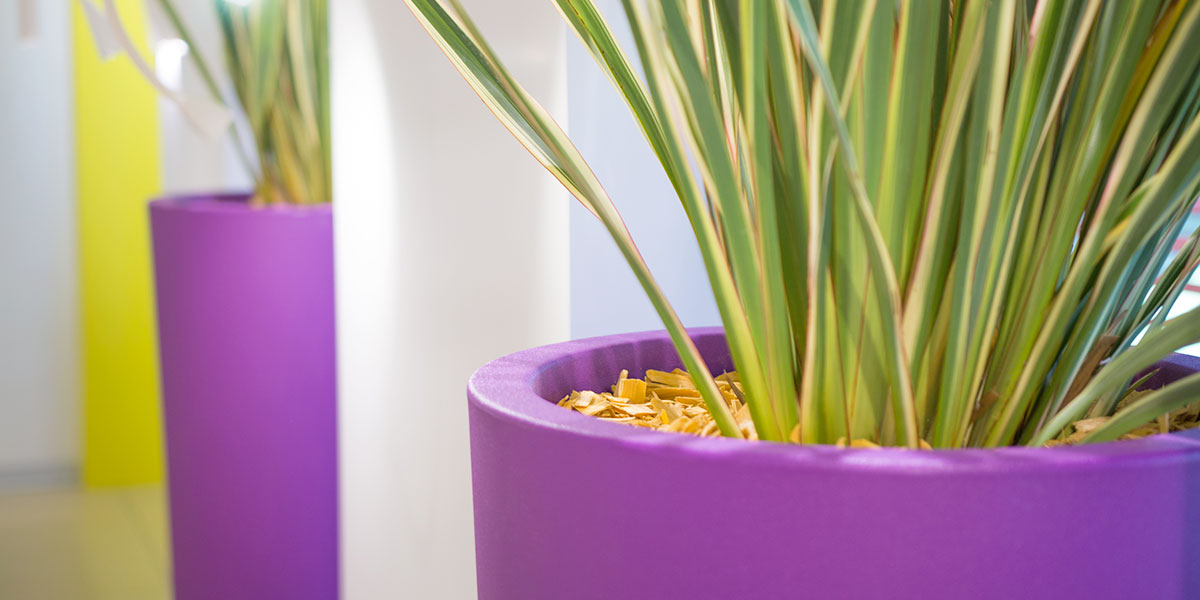Plastic pots: the benefits
Plastic pots are light and resistant to atmospheric agents, they come in different colours and are often bang on trend.
Plastic pots are durable over time but, once worn out, are 100% recyclable, making them the perfect choice for the more environmentally-conscious among us, and also for those who like to save a few pennies, as they tend to be very reasonably priced.
Choosing the right-sized plant pot
The basic rule of thumb is to always start with small pots and then repot the plant as it grows. You’ll need to do this as a plant pot that is too large will waste water, while a plant pot that is too small will cause your plant to suffer.
The size of plant pot also depends on the growth capacity of your plant: cacti grow slowly, so you won’t need to repot them for several years. If you have purchased rapidly growing plants, you will need to check that the roots aren’t suffocated and repot them in a container slightly larger than the previous one, i.e. one with a diameter that is 2 to 5 centimetres larger than the previous pot.
Plant pot shapes
There are plenty of different shaped garden and apartment pots to choose from, but also plenty of different styles. There’s just one thing to bear in mind when it comes to space: rectangular pots, such as planters and boxes, can be placed next to each other, and therefore take up less space. Round pots can be grouped together and may be more aesthetically pleasing but will require more space.
Plants that are suited to plastic pots
Plastic pots are better at retaining moisture from the ground than terracotta pots because they have impermeable sides.
On the other hand, since they are not porous, they prevent the passage of water and air, leading roots to occasionally have difficult respiring and also causing soil to dry out much more slowly. In order to avoid plants rotting, you should water them less often.
For plastic pots, choose plants that are well suited to humid environments and that love fresh soil, such as ferns, papyrus, ivy, spatiphyllum, heuchera and cyclamen.

0 Comment
Leave a Reply